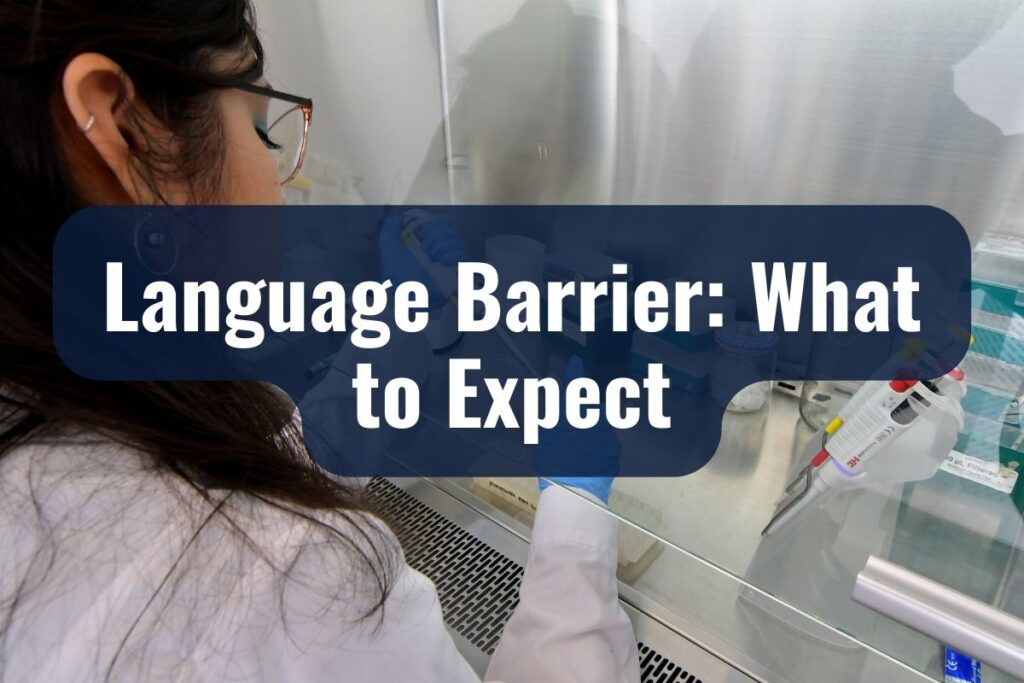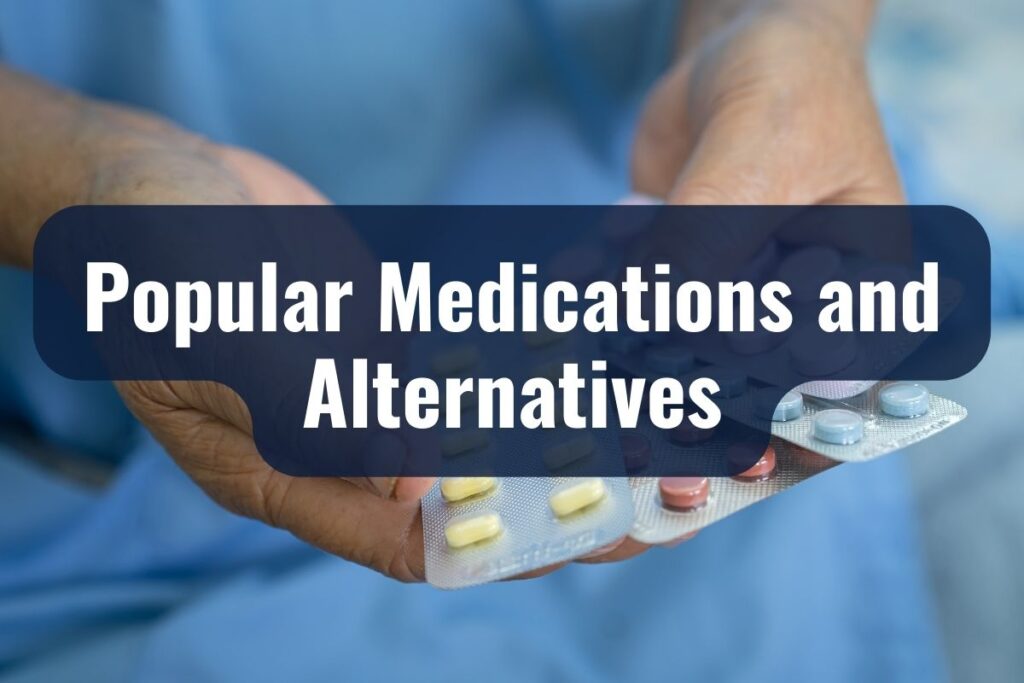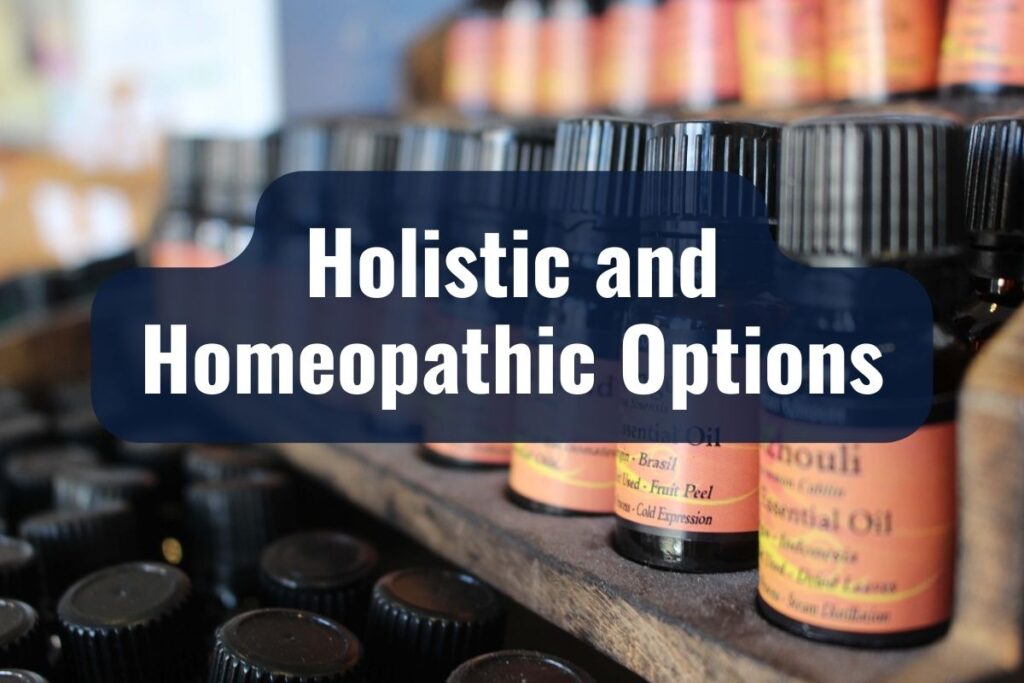When moving to a new country, you’ll likely find yourself is a pharmacy, or “Apotheke” as it’s called in German, at some point. Whether you’re seeking over-the-counter medication, filling a prescription, or simply picking up everyday health essentials, understanding how pharmacies operate in Germany can make your life significantly easier.
In this guide, we’ll walk you through everything you need to know about pharmacies in Germany, from the types you’ll encounter to how to deal with language barriers.
KEY TAKEAWAYS
- German pharmacies, known as “Apotheke,” are divided into public, hospital, and online pharmacies.
- The red “A” symbol indicates the presence of a pharmacy.
- Most pharmacies operate between 8:30 a.m. to 6:30 p.m., with some staying open longer.
- Larger pharmacy chains in cities are more likely to have English-speaking staff.
- A prescription is mandatory for specific medications like antibiotics.
- Cash, Girocard, and most major credit cards are accepted.
- Public health insurance often covers prescription medication costs.
- “Notapotheke” are emergency pharmacies open during non-regular hours.
Types of Pharmacies
When you hear the term “pharmacy,” you might imagine a store where medications and health-related products are sold. While that’s generally correct, it’s worth noting that there are different types of pharmacies in Germany to meet a variety of health needs. Knowing what’s available can help you make an informed choice.
Public Pharmacies
Public pharmacies, or “öffentliche Apotheken,” are the most common type you’ll encounter. These are the stores you’ll see in city centers, malls, or residential areas. They offer a wide range of products, from prescription medications to over-the-counter items like vitamins, cosmetics, and first-aid supplies.
Hospital Pharmacies
You’ll find hospital pharmacies (“Krankenhausapotheken”) within hospitals. These pharmacies primarily serve the needs of in-patients and medical professionals within the hospital. While they do carry a broad selection of medications, their primary focus is different from that of public pharmacies. Generally, they are not designed for walk-in customers.
Online Pharmacies
Germany also has a growing number of online pharmacies that offer the convenience of home delivery. These can be particularly useful for repeat prescriptions or bulk buying of non-prescription items. However, you’ll need to exercise caution and ensure that the online pharmacy you choose is licensed and reputable.
Understanding the Pharmacy Sign

If you’ve ever walked down a street in Germany, you might have noticed a shop with a bright green “A” sign hanging outside. This is the universal symbol for pharmacies in Germany, and it’s a sign that you can walk in and find a range of medical and health-related products. The “A” stands for “Apotheke,” which is the German word for pharmacy.
| Symbol or Term | Meaning |
| Red “A” | Indicates a standard public pharmacy |
| Green Cross | Sometimes used, but the red “A” is more common |
| Notapotheke | Signifies an emergency pharmacy |
| Öffnungszeiten | Indicates business hours |
| Rezeptpflichtig | Prescription required |
| Frei verkäuflich | Over-the-counter medication |
The Significance of the Green “A”
The green “A” is more than just a branding gimmick; it’s a regulated sign indicating that the establishment has met the criteria set by German healthcare authorities to operate as a pharmacy. When you see this sign, you can be assured that the pharmacy complies with strict regulations concerning the quality and storage of medications.
Illuminated Signs for After-Hours
Sometimes, you might notice that the green “A” is illuminated even when the pharmacy appears to be closed. This usually indicates an emergency pharmacy, or “Notapotheke,” which we will discuss in detail later in this guide. An illuminated sign outside standard business hours generally means the pharmacy is open for emergency services.
Being able to recognize and understand the pharmacy sign can give you confidence in locating a reliable source for your healthcare needs. Next time you see that glowing green “A,” you’ll know exactly what it means and what you can expect inside.
Business Hours
While it might be convenient to imagine a pharmacy open at all hours, reality often differs. Knowing the typical business hours of pharmacies in Germany can save you from stress, especially when you need urgent medications or healthcare products.
Typical Operating Hours
Most public pharmacies in Germany operate from Monday to Saturday. On weekdays, you’ll find that many pharmacies are open from 8 or 9 in the morning until 6 or 7 in the evening. On Saturdays, they generally close a bit earlier, often around 1 or 2 PM. It’s rare to find pharmacies open on Sundays, except for those designated as emergency pharmacies.
Variations in Business Hours
Like any rule, there are exceptions. In larger cities, you may find pharmacies with extended hours, sometimes even remaining open until midnight. However, this is more the exception than the norm. Airports and train stations often have pharmacies with longer operating hours as well.
24-Hour Pharmacies
True 24-hour pharmacies are scarce in Germany. They are mostly found in larger cities and at major transportation hubs. These pharmacies are often more expensive due to their extended availability.
Language Barrier: What to Expect

If you’re a foreigner living in or visiting Germany, you might be concerned about navigating healthcare needs in a language you may not fully understand. The good news is that pharmacies in Germany are generally well-equipped to assist people who speak English, though it’s helpful to know what to expect and how to prepare.
Prevalence of English-Speaking Staff
In larger cities and tourist-heavy areas, you’ll often find at least one staff member in a pharmacy who is comfortable speaking English. However, the level of English proficiency can vary. In rural areas or smaller towns, finding an English-speaking pharmacist might be more challenging.
Translation Apps and Strategies
In instances where you find it difficult to communicate, translation apps can be a lifesaver. Apps like Google Translate not only convert text but also offer a voice translation feature that can facilitate basic conversations.
Medical Terminology
It can be helpful to know some basic German medical terms or the generic name of the medication you need. Even if the staff speaks English, brand names and formulations can differ from country to country.
Carry a Written Prescription or Note
If you’re seeking a specific medication or have unique healthcare needs, carrying a written prescription or note from a healthcare provider can be very beneficial. Most medical professionals write prescriptions in a manner that is universally understood by pharmacists, making the transaction much smoother.
Prescriptions and Over-the-Counter (OTC) Medications
Knowing the difference between prescription and over-the-counter medications is crucial when you’re navigating a foreign healthcare system. In Germany, this distinction is often labeled as “Verschreibungspflichtig” for prescription medications and “Frei verkäuflich” for over-the-counter options.
Verschreibungspflichtig: Prescription Medications
When a medication is designated as “Verschreibungspflichtig,” it means that you’ll need a prescription from a licensed healthcare provider to obtain it. Prescriptions in Germany are usually written in a standardized format that pharmacists readily understand. If you’ve received a prescription, you’ll need to submit it to the pharmacy to obtain your medication.
Frei verkäuflich: Over-the-Counter Medications
On the other hand, “Frei verkäuflich” medications are available without a prescription. These usually include common pain relievers, vitamins, and cold medications. However, you may find that some medications you’re accustomed to buying without a prescription in your home country may require one in Germany.
Inquire for Alternatives
If you’re looking for a specific medication and it turns out to be prescription-only in Germany, don’t hesitate to ask the pharmacist for an over-the-counter alternative. They are usually knowledgeable about the active ingredients in medications and may be able to recommend a suitable substitute.
Consult the Pharmacist
German pharmacists are highly trained and can offer expert advice on a variety of health issues, including suitable medications for minor ailments. Even if you’re just looking for an over-the-counter remedy, a quick consultation can ensure that you’re making an informed choice.
Popular Medications and Alternatives

When you’re in a new country, you might find that your go-to medications are not readily available, or perhaps they go by a different name. It can be disorienting, but don’t worry—Germany has a wide range of medications that serve the same purpose as those you’re familiar with. Here’s what you need to know about popular medications and their alternatives in Germany.
Common Medications in Germany
Germany has its own array of commonly-used medications for ailments like headaches, colds, and digestive issues. Some popular brands include:
- Aspirin: Widely used for pain relief and to reduce inflammation
- Ibuprofen: Another option for pain and inflammation relief
- Sinupret: Herbal medication commonly used for sinus issues
- Grippostad: Often used to alleviate cold and flu symptoms
Brand Names vs. Generic Names
In Germany, as in many other countries, medications are available both as brand names and generic versions. The generic medications contain the same active ingredients as their brand-name counterparts but are generally less expensive. If you’re looking for a specific medication, it’s a good idea to know both the brand and generic names to ease your search.
Prescription Alternatives
If you find that a medication you’re accustomed to is only available via prescription in Germany, don’t hesitate to consult the pharmacist for an over-the-counter alternative. Pharmacists in Germany are knowledgeable and can often recommend a different medication with similar effects.
Homeopathic and Herbal Medications
Germany has a strong tradition of using herbal and homeopathic remedies, and you’ll often find these alternatives displayed alongside conventional medications. Some of these could include:
- Teas: Such as chamomile or peppermint for digestive issues
- Essential Oils: Like eucalyptus for respiratory problems
- Herbal Tablets: Such as valerian root for sleep issues
Payment Methods
Understanding the payment options available to you can streamline your experience at a pharmacy in Germany. While transactions are usually straightforward, it’s helpful to know what to expect so that you can prepare accordingly.
Cash and Cards
Most pharmacies in Germany accept both cash and card payments. However, it’s advisable to carry some cash with you, especially if you’re visiting smaller pharmacies in rural areas, where card payment systems might occasionally be out of service.
Contactless Payments
Many modern pharmacies now offer the option for contactless payments, making transactions even quicker and more convenient. If you have a contactless card or use a mobile payment system like Apple Pay or Google Pay, you should be able to use it at most locations.
Health Insurance Cards
If you’re covered by German health insurance, you’ll generally present your health insurance card (“Gesundheitskarte”) when filling a prescription. The pharmacy will use this to directly bill your insurance, and you may have to pay a small co-payment.
International Credit Cards
International credit cards are widely accepted at pharmacies, especially in urban areas. However, it’s a good idea to check for any foreign transaction fees that may apply to your card beforehand.
Invoicing Options
Some pharmacies, particularly online ones, offer the option to pay via invoice (“Rechnung”). This allows you to receive the medication first and pay the bill within a specified time frame, typically within 14 days. However, this option is generally only available to residents who have a German bank account.
Related: German Currency (2024): From Deutsche Mark to Euro
Insurance and Pharmacies in Germany

Healthcare costs can quickly add up, especially if you’re dealing with ongoing medical conditions or unexpected health issues. Understanding how health insurance interacts with pharmacy services in Germany can give you a clearer picture of what to expect financially and how to prepare.
Public Health Insurance
If you’re a resident in Germany and enrolled in the public health insurance system, also known as “Gesetzliche Krankenversicherung” (GKV), your health insurance card will play a significant role at the pharmacy. For prescription medications, you’ll generally only have to pay a co-payment, which can range from €5 to €10. The rest is covered by your insurance.
Private Health Insurance
Those with private health insurance (“Private Krankenversicherung” or PKV) often have to pay the full cost of the medication upfront. You can then submit the receipt to your insurance company for reimbursement, depending on your coverage plan.
Tourists and Short-Term Visitors
If you’re in Germany as a tourist or short-term visitor, your existing health insurance may not be valid. It’s advisable to secure travel insurance that covers medical expenses, including prescription medications. If you do need to purchase medicine, you’ll likely have to pay out-of-pocket and then seek reimbursement from your travel insurance provider.
EU Health Insurance Card
Citizens from European Union countries can use their European Health Insurance Card (EHIC) for necessary medical treatments, which often includes prescriptions. However, the EHIC doesn’t cover the costs of over-the-counter medications.
Co-payments and Exemptions
Some individuals may be exempt from co-payments, such as children under the age of 18, or those with chronic conditions who have reached a certain limit in healthcare expenses. Always carry relevant documentation to ensure that you are not charged incorrectly.
Emergency Services
There may come a time when you need pharmacy services outside of regular business hours, or you require immediate medical attention. In such cases, knowing how to navigate emergency pharmacy services in Germany can be invaluable.
Notapotheke: Emergency Pharmacies
In Germany, each city and town has designated emergency pharmacies (“Notapotheke”) that are open after regular business hours to handle urgent needs. These pharmacies take turns staying open during the night, weekends, and public holidays.
Locating an Emergency Pharmacy
There are several ways to find the nearest emergency pharmacy:
Local Newspapers: Many local newspapers publish a list of emergency pharmacies for the week or month.
Online Directories: Websites and apps often provide updated information on emergency pharmacies in your area.
At Regular Pharmacies: Notices are usually posted on the doors of regular pharmacies, directing you to the nearest emergency pharmacy.
The Role of Emergency Pharmacies
Not only do emergency pharmacies provide medications, but they also offer medical advice for minor conditions. However, they are not a substitute for emergency medical care in severe cases, such as extreme pain, difficulty breathing, or significant injuries.
Additional Fees
It’s worth noting that emergency pharmacies may charge an additional fee for services rendered outside of standard operating hours. These fees are typically between €2.50 and €5.00.
Emergency Hotlines
If you’re unsure about whether you need to go to an emergency pharmacy, the medical emergency number in Germany is 112. You can also call the non-emergency medical advice line at 116 117 for guidance on whether a pharmacy visit is necessary.
Holistic and Homeopathic Options

Germany has a rich history and strong current practice in the field of holistic and homeopathic medicine. For those who prefer a natural or alternative approach to healthcare, you’ll find a variety of options available in German pharmacies. Here’s what you need to know.
Availability of Holistic Products
In addition to conventional medications, most German pharmacies offer a wide range of holistic and homeopathic options. These could range from herbal teas and essential oils to mineral supplements and homeopathic dilutions.
Consult with a Pharmacist
Pharmacists in Germany receive training in both conventional and alternative medicine, so they can provide comprehensive advice based on your specific healthcare needs. If you’re interested in trying a holistic or homeopathic alternative, don’t hesitate to consult with a pharmacist for personalized recommendations.
Certifications and Labels
When you’re shopping for holistic or homeopathic products, it’s advisable to look for certifications or quality seals, often labeled as “Bio” or “Öko,” which indicate the product has met certain organic or ecological standards.
Common Holistic and Homeopathic Products
Some frequently used holistic and homeopathic products in Germany include:
- Arnica: Used for bruises, muscle soreness, and joint pain
- Calendula: Often found in creams and gels for skin irritations
- Chamomile: Commonly used in teas and ointments for digestive and skin issues
- Echinacea: Popular for boosting the immune system, particularly during cold and flu season
Precautions
While holistic and homeopathic options can offer natural alternatives, they should not replace conventional medical treatment for serious or chronic conditions. Always consult healthcare professionals for a comprehensive treatment plan tailored to your needs.
Tips for a Hassle-free Experience
Visiting a pharmacy in a foreign country can be daunting, especially when you’re not familiar with the language or healthcare system. Here are some practical tips to make your pharmacy visit in Germany as smooth as possible.
- Plan Ahead
- If you know you’ll need a specific medication, try to find out its German equivalent in advance. This can save you time and avoid potential confusion when communicating with the pharmacist.
- Use Translation Apps
- Modern translation apps can be extremely helpful if you’re facing a language barrier. Some even offer medical terminology, which can be particularly useful in a pharmacy setting.
- Keep Medical Documents Handy
- If you have a chronic condition or are taking multiple medications, it’s a good idea to have a medical summary or a list of your medications. This will help pharmacists offer more accurate advice.
- Be Aware of Public Holidays
- Pharmacies, like other businesses, are often closed on public holidays. Make sure to stock up on essential medications beforehand to avoid running out when pharmacies are closed.
- Check Expiry Dates
- Always check the expiry dates on medications, especially over-the-counter options. German pharmacies are generally meticulous about this, but it’s always good to double-check.
- Ask for Samples
- If you’re looking to try a new over-the-counter medication, ask the pharmacist if they have samples. This allows you to try the product before committing to a full-sized package.
- Request Child-friendly Forms
- If you’re getting medication for a child, ask the pharmacist if it’s available in child-friendly forms like syrups or chewable tablets. This can make administering the medication much easier.
- Save Your Receipts
- Whether for insurance claims or personal records, always save your receipts. Some pharmacies even offer digital receipts via email.
- Opt for Larger Chains for More English-Speaking Staff
- If language is a significant barrier, larger pharmacy chains in cities are more likely to have English-speaking staff.
Pharmacy Etiquette

Understanding the local customs and practices can go a long way in making any experience more comfortable and efficient. German pharmacies are no different. Here are some pointers on pharmacy etiquette to help you navigate your visit seamlessly.
- Waiting Your Turn
- Upon entering the pharmacy, you may notice a ticket system or a queue. In most cases, take a ticket and wait for your number to be called. If there’s a queue, it’s customary to wait in line until it’s your turn.
- Addressing the Pharmacist
- In Germany, it’s customary to greet people formally, especially in professional settings like pharmacies. A simple “Guten Tag” (Good day) or “Hallo” (Hello) is an appropriate greeting. Pharmacists are often addressed as “Herr Apotheker” or “Frau Apothekerin,” although using “Sie” (the formal ‘you’) is usually sufficient.
- Privacy and Discretion
- German pharmacies typically offer a high level of privacy. You’ll often find a separate consultation area where you can speak confidentially with the pharmacist about your medical concerns. Feel free to use this space if you need more privacy.
- Asking for Advice
- Don’t hesitate to ask for the pharmacist’s advice, even for over-the-counter medications. Pharmacists in Germany are highly trained and can offer valuable insights into drug interactions, side effects, and alternatives.
- Thank You and Goodbye
- It’s polite to say “Danke” (Thank you) after your purchase. A “Tschüss” (Bye) or “Auf Wiedersehen” (Goodbye) as you’re leaving is also generally appreciated.
- Handling Prescriptions
- If you have a prescription, hand it to the pharmacist right away. It’s essential to keep the original prescription document as it may be required for insurance purposes or future pharmacy visits.
- Be Prepared for Opening Questions
- Pharmacists may ask opening questions like “Wie kann ich Ihnen helfen?” (How can I help you?) or “Was fehlt Ihnen?” (What’s bothering you?). Being prepared to answer these can make the consultation more efficient.
- Tipping
- Tipping is generally not expected or required in German pharmacies.
Legal Restrictions and Guidelines
Navigating healthcare in a different country comes with its own set of rules and regulations. When it comes to pharmacies in Germany, being aware of the legal landscape can help you avoid any misunderstandings or complications. Here’s what you need to know.
Prescription Medications
In Germany, certain medications are strictly controlled and are available only with a prescription from a registered medical practitioner. This includes most antibiotics, specialized pain medications, and medications for chronic conditions. Attempting to buy prescription-only medications without a valid prescription is illegal and could result in fines or legal action.
Over-the-Counter Medications
While a wide range of medications is available over-the-counter, there are quantity limits for certain substances, such as strong painkillers or allergy medications. Make sure to consult with the pharmacist if you’re looking to buy these in larger quantities.
Age Restrictions
Certain medications, particularly those containing alcohol or potentially addictive substances, have age restrictions. You may be asked to provide identification to verify your age when purchasing these medications.
Import and Export Regulations
If you’re planning to bring medications into Germany from another country, be cautious of import regulations. The same applies if you’re planning to take medications purchased in Germany to another country. Always check the regulations and consider obtaining a medical certificate to confirm the necessity of the medication, especially if it contains controlled substances.
Privacy Laws
Your medical and personal information is protected by stringent privacy laws in Germany. Pharmacists are obligated to maintain the confidentiality of your health information.
Vaccinations
Pharmacies in Germany generally do not administer vaccinations; you’ll need to visit a medical practitioner for that. However, some vaccines may be available for purchase at the pharmacy for administration by a healthcare provider.
Online Pharmacies
Online pharmacies are increasingly popular but exercise caution and ensure that you’re using a reputable source. The online pharmacy should have a physical address in Germany or another EU country and should display an EU common logo on their website.


